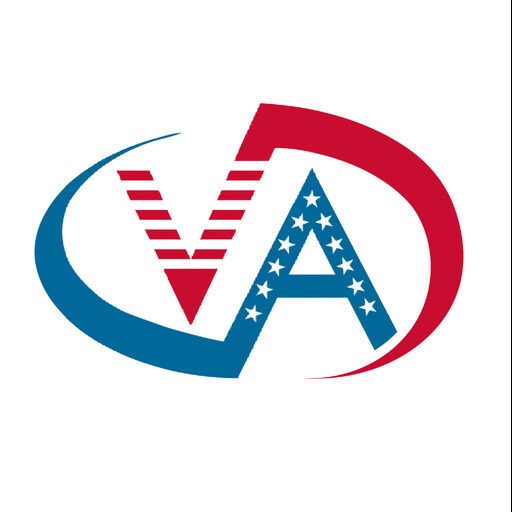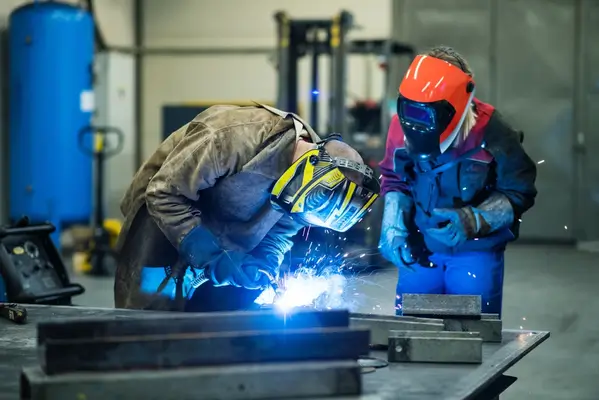Why Vocational Training Matters for Disabled Veterans
Vocational training programs are designed to empower disabled Veterans by addressing employment barriers and enhancing their skillsets.
These programs bridge the gap between military service and civilian employment, helping Veterans adapt to new industries while accommodating their unique needs.
Key Benefits of Vocational Training Programs:
- Access to specialized education tailored to Veterans’ strengths and limitations.
- Opportunities to develop marketable skills in high-demand fields.
- Support services, such as career counseling and job placement assistance.
Top Vocational Training Programs for Disabled Veterans
Several government and private organizations offer vocational training tailored to Veterans’ needs. Here are some of the most notable programs:
1. Veteran Readiness and Employment (VR&E) Program
Administered by the VA, the VR&E program provides comprehensive services for Veterans with service-connected disabilities, including:
- Career counseling and planning.
- Tuition assistance for vocational schools or colleges.
- Job training, including apprenticeships and on-the-job training opportunities.
Eligibility: Veterans with a VA disability rating of at least 10% who face employment challenges due to their disability.
2. Helmets to Hardhats
This program connects Veterans to careers in the construction industry, offering:
- Free training and certification programs.
- Pathways to apprenticeships with unionized trade organizations.
- Access to skilled trades like carpentry, welding, and electrical work.
"Helmets to Hardhats is a great resource for Veterans who enjoy hands-on work and want to build a long-term career," notes Sarah Johnson, a program coordinator.
3. Warrior Care's Education and Employment Initiative (E2I)
E2I focuses on helping wounded warriors transition to civilian careers by:
- Identifying career goals based on skills and interests.
- Providing vocational training in various industries.
- Offering job placement support.
Vocational Training by Industry
Different industries have unique training opportunities tailored to Veterans' interests and capabilities. Here are some popular fields for disabled Veterans:
Information Technology (IT)
- Programs like Microsoft Software & Systems Academy (MSSA) provide certifications in cybersecurity, cloud computing, and software development.
- IT offers remote work opportunities, making it ideal for Veterans with mobility challenges.
Healthcare
- Training programs like Operation: GoodJobs prepare Veterans for roles in nursing, medical administration, or therapy.
- The healthcare field is rewarding, with high demand for skilled professionals.
Entrepreneurship
- The Small Business Administration (SBA) offers resources like Boots to Business, a program designed to help Veterans launch their own businesses.
- Participants learn about business planning, funding options, and marketing strategies.
Common Challenges and Solutions
While vocational training offers immense benefits, Veterans may face obstacles during the process. Here’s how to overcome them:
Financial Barriers
- Solution: Many programs, like VR&E and the GI Bill, cover tuition and other costs. Explore scholarships specifically for Veterans.
Lack of Direction
- Solution: Career counseling services available through programs like VR&E help Veterans identify their strengths and align them with career goals.
Adjusting to Civilian Work Environments
- Solution: Support groups and mentorship programs can ease the transition by connecting Veterans with peers who’ve successfully navigated similar challenges.
How to Apply for Vocational Training Programs
The application process for most programs involves these steps:
- Determine Eligibility: Check the specific requirements for each program.
- Gather Documentation: Prepare your DD-214, VA disability rating, and any other required documents.
- Apply Online: Most programs have an online application process.
- Follow Up: After applying, stay in touch with program coordinators to ensure timely updates.
Comparative Table: Popular Vocational Training Programs
| Program | Key Features | Best For |
|---|---|---|
| Veteran Readiness and Employment (VR&E) | Comprehensive support for education and job placement | Veterans with service-connected disabilities |
| Helmets to Hardhats | Construction industry apprenticeships | Veterans seeking hands-on careers |
| Boots to Business | Entrepreneurship training | Veterans starting their own businesses |
Financial Assistance for Vocational Training
Many Veterans worry about the costs of vocational training, but numerous resources exist to provide financial support:
| Resource | What It Covers |
|---|---|
| GI Bill | Tuition, housing, and training costs |
| Scholarships for Veterans | Specialized funding for vocational training programs |
| State Workforce Agencies | Grants and financial aid for local training |
Success Stories: Veterans Who Thrived
Real-life examples demonstrate the transformative power of vocational training:
- Mark, an Army Veteran, leveraged the VR&E program to become a certified HVAC technician. Today, he runs his own business.
- Lisa, a Navy Veteran, completed the MSSA program and now works as a cybersecurity analyst for a Fortune 500 company.
- James, a Marine Corps Veteran, used Boots to Business to launch a thriving coffee shop that employs fellow Veterans.
Frequently Asked Questions
How do I know if I’m eligible for vocational training programs?
Eligibility varies by program. Most require a VA disability rating and proof of service.
Can I use my GI Bill benefits for vocational training?
Yes, the GI Bill covers many vocational programs, including apprenticeships and certifications.
What if I need help deciding on a career path?
Programs like VR&E and Military OneSource offer free career counseling services.
Are there programs specifically for older Veterans?
Yes, many programs, including VR&E, cater to Veterans of all ages.
Can I receive financial assistance for training?
Most programs offer full or partial funding through the GI Bill, scholarships, or state grants.
Are vocational programs available online?
Yes, many IT and business programs offer flexible online learning options.
What industries are best for disabled Veterans?
High-demand industries like IT, healthcare, and skilled trades often provide the most opportunities.
How long does it take to complete vocational training?
Training durations vary but typically range from a few months to two years, depending on the field.

The VA Loan Network Editorial Team is comprised of dedicated mortgage specialists and financial writers committed to providing veterans and service members with accurate, up-to-date information on VA loan benefits, eligibility, and the home-buying process.








